In last month’s reconciliation agreement, Abbas handed his legacy into Hamas’s keeping, and Hamas revealed that it is strong enough to drag its people to war, but not to freedom
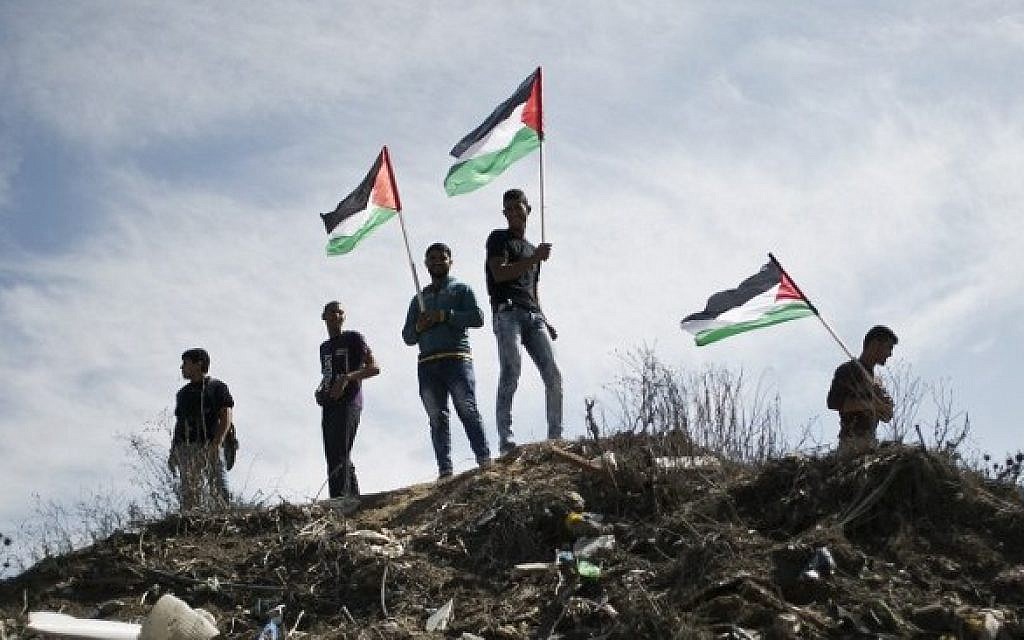
On November 1, against all expectations, Hamas officials dismantled the checkpoints the organization maintained inside the Israeli-controlled crossings on the Israeli-Gazan border.
It was a dramatic step. No longer would Palestinians leaving Gaza for Israel or the West Bank face questioning by Hamas intelligence officials about their business. No longer would Palestinians entering Gaza face the exorbitant import taxes and other fees imposed by Hamas.
More startling still: it was a step beyond what Hamas was strictly required to do at this stage under the reconciliation agreement signed with the Fatah-led Palestinian Authority in Cairo last month that handed some control over Gaza to the PA.
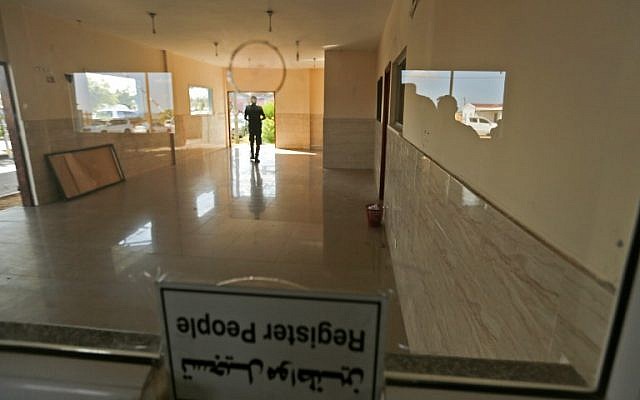
It is not enough to simply say these actions are part of “reconciliation.” Hamas’s commitment to “national reconciliation” has never extended this far in the past. What changed? What could possibly drive Hamas to surrender part of its rule over Gaza and renounce vital sources of influence and money?
Winners and losers
At first glance, it is Fatah, not Hamas, that appears the clear winner from the agreement. In the reconciliation deal, Fatah regained a foothold in Gaza for the first time since its forces were summarily routed from the Strip in 2007.
The advantages for Fatah are many. Its chief, PA President Mahmoud Abbas, now has an answer to the complaint occasionally heard from Israeli officials that he cannot negotiate a peace agreement because he neither controls nor represents half of the Palestinian body politic. Similarly, his standing on the world stage is boosted by the sheer fact of movement. There is a crack in the status quo. If Fatah and Hamas can reconcile, some diplomats have quietly suggested, perhaps wider gulfs, such as those separating Israelis and Palestinians, can also be bridged.
The ability to show progress also has financial implications. Incorporating Hamas into a new PA government would probably cost the PA dearly, as some countries and international institutions would find it difficult to fund Palestinian agencies linked to Hamas or its officials. On the other hand, if Fatah can incorporate Hamas sufficiently for “reconciliation” to be realized, while maintaining a firewall between Hamas and aid-receiving institutions, the takeover of Gaza could yet turn out to be a financial boon. International assistance to Gaza all but dried up under Hamas. If it picks up again under PA auspices, there’s a lot of money, institution-building and political capital to be gained for Fatah.
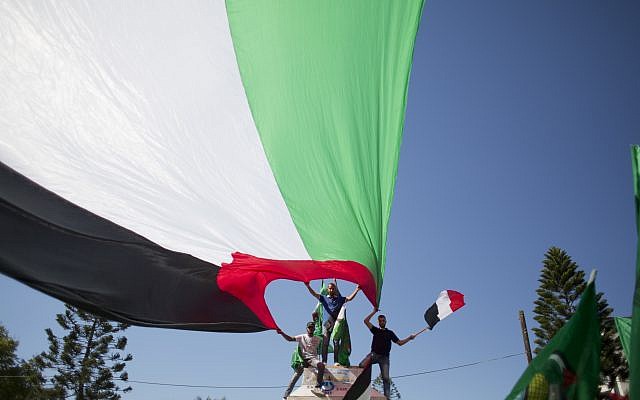
And what has Hamas gained for all that? The answer, ironically, is that the very things it lost are its most significant gain.
When it seized Gaza from Fatah in 2007, Hamas declared that the takeover validated its vision of an Islamic Palestine, that its rise against all odds, against the express wishes of the PA, Israel and much of the international community, proved that these opponents, for all their immense power, could be pushed back, and that pious Muslims could find themselves on the ascendant in their wake.
Hamas’s troubles may have begun when it made the mistake of believing its own propaganda. In the name of its pious devotion to the cause, it drove Gaza from one ideological clash to another, dragging its long-suffering population not only into repeated rounds of war with Israel, but even, inexplicably to outsiders, into the bloodstained mess of the civil war between the Egyptian army and the Muslim Brotherhood, Hamas’s one-time patrons and ideological forebears.
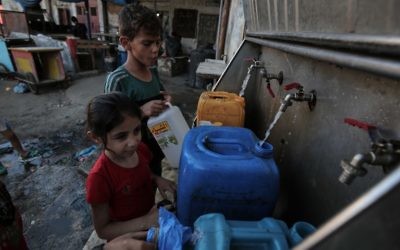
Facing an Israeli blockade from the start of Hamas’s rule in 2007, as of 2014 Gazans found themselves under a ruthlessly tightening Egyptian one as well — the Egyptian army’s response to Hamas’s meddling. And beginning in 2017, Abbas’s PA began imposing its own financial stranglehold, denying the Hamas-led government in Gaza funds from the PA for the provision of basic services such as electricity.
Hamas could blame and bluster, but it was becoming increasingly difficult for it to argue it was leading Gaza to a better place.
Hamas’s political leadership has spent the past 10 years attempting to prove that the movement was more than a narrowly conceived paramilitary organization. By 2017, its military wing, which took control of the organization with the rise of Yahya Sinwar in the last internal elections in February, had concluded that the attempt to expand Hamas’s agenda and vision beyond the narrow confines of its guerrilla war against Israel had become a trap, a distraction. It saddled the organization with the thankless monotonies and shackling responsibilities of civilian leadership. It was suddenly in charge of the economic wellbeing, health, education and safety of millions — and for what?
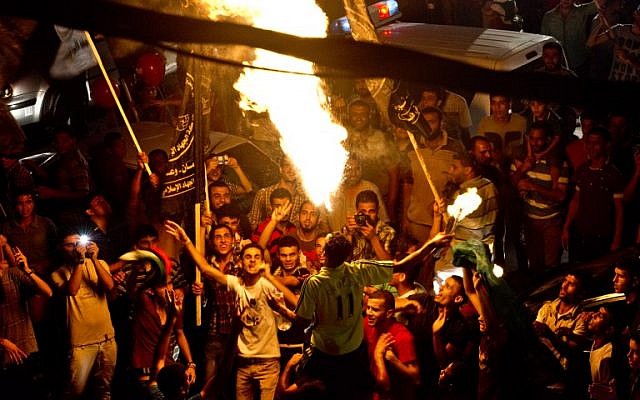
And so both sides in the reconciliation deal believe they are gaining something important. Fatah restores some of its lost privileges and powers after 10 long years of embarrassment in Gaza. Hamas sheds the distracting albatross of civilian rule that so diminished its standing and, many feel, set it up for failure.
Misunderstandings
Abbas’s predecessor, former Fatah leader and Palestinian Authority founder Yasser Arafat, passed away in 2004 having watched his efforts come to ignominious failure. His PA all but crushed, and with much of the post-9/11 West, usually so sympathetic to the Palestinian cause, exasperated at the Palestinian resort to the mass-killing of Israeli civilians, Arafat’s bitter end led to a reexamination of his fundamental strategy by the Palestinian elite.
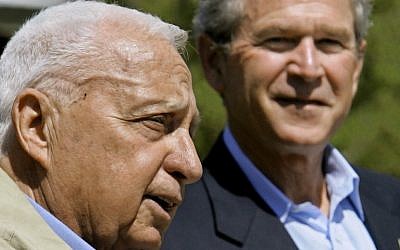
By the time of Arafat’s death, the man who had destroyed him, who had humiliated him by demolishing part of his Muqata headquarters building in Ramallah with him inside, who had sent Israeli forces marching into Palestinian population centers with one purpose: to capture and dismantle the terror groups and end the wave of suicide bombings detonating in Israeli cities – that man, Ariel Sharon, had become the most popular Israeli leader in decades. Sharon attained that popularity through a simple expedient: amid a wave of detonating pizzerias and mass-murders of Israeli children, he ended the decade-old experiment of negotiating with Palestinian leaders on the assumption that they were capable or willing to offer peace.
Arafat’s failure, and Sharon’s parallel success, drove home something important about the nature of that failure. It was in large part a failure to understand Israelis.
Arafat spent those final years of his life apparently believing that the relentless campaign of bombings and shootings that began in 2000 would convince the Israelis that the Palestinian spirit was indomitable and ultimately irresistible, that they could never be safe in this land and so, eventually, were destined to lose the long war between the two peoples.
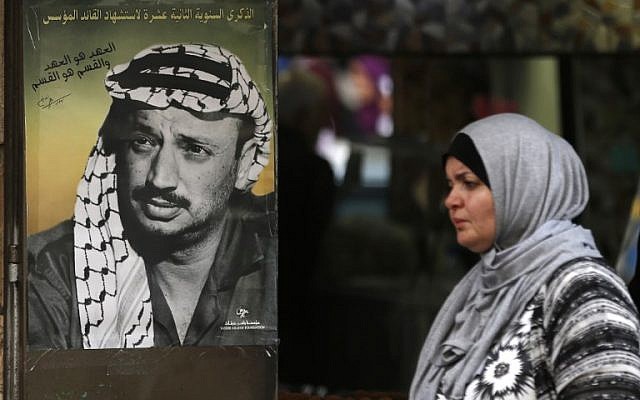
But Israelis drew the opposite lesson from that experience: according to countless and exhaustive polls, most Israelis concluded from that violence that Palestinian politics could not resist the temptation to transform any gains at the negotiating table into a staging ground for violent jihad against Israeli civilians. Palestinian demands were thus unfulfillable, because they did not end at the Green Line. It did not matter if one found a Palestinian moderate and began negotiating with him. There would always be Arafats, Marwan Barghoutis and Yahya Sinwars in the wings preparing to turn any peace gains into further and deadlier war.
Most Israelis came to believe, in other words, that Palestinian violence was not susceptible to policy or concession, that there was nothing they could afford to give to the Palestinians that would end it — and that therefore it was up to the Israelis themselves to take the necessary steps to crush the Palestinian capacity for violence.
The point here is not to argue that this mainstream Israeli belief is correct. Palestinian society and politics are complex, and Palestinian attitudes have themselves changed over the years. Whether this Israeli view is objectively true is a judgment call, one usually made with insufficient evidence either way. The point here is simply to note that this is what mainstream Israelis have come to believe about the Palestinians — and that this belief carries strategic implications for the Palestinian future.
The Palestinians have yet to recover from Arafat’s miscalculation about Israeli psychology, his misreading of how Israelis would respond to the terrorism of the Second Intifada. They have yet to regain the economic integration and political potential that once drove the Palestinian economy and thrust its cause upon the world stage.
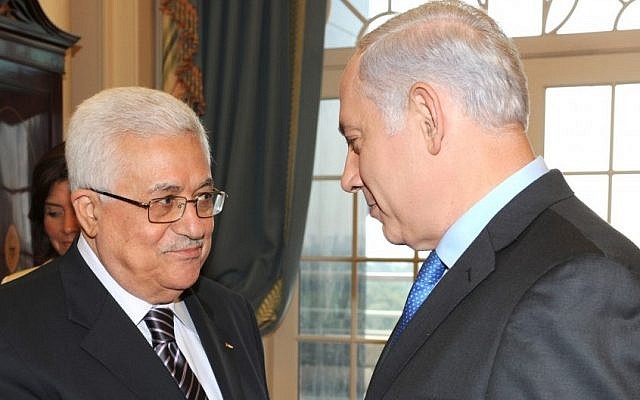
Yet, ironically, it was in the 13 years since Arafat’s death, under the less-than-inspiring, less-than-competent rule of his heir Mahmoud Abbas, that the Palestinians engaged in an even more fundamental miscalculation. Arafat misunderstood the Israelis. Abbas misunderstands the Palestinians.
Abbas has spent most of the years since 2004, the year when Arafat’s strategy of violence might be said to have begun its long, slow, comprehensive collapse, pursuing the alternative policy he had long championed: replacing Palestinian terrorism with internationalism, replacing a type of pressure that cost Palestine its allies and any gains it had made under the Oslo process with a different sort of pressure geared toward restoring those allies and augmenting those gains.
His policy, in short: to throw the Palestinian cause at the feet of the world.
But Abbas’s internationalization strategy rests on two unexamined assumptions. First, that the Israeli resistance to withdrawing from the West Bank is a relatively weak sentiment, weak enough to be swayed by international opprobrium or sanctions; second, and despite all evidence to the contrary, that his fellow Palestinians would play along with the strategy.
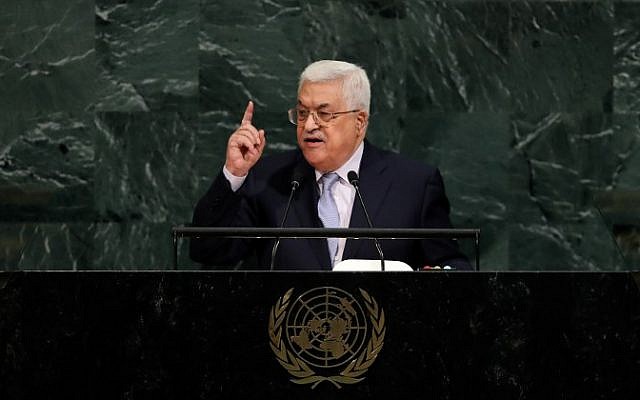
Abbas grasps that the two Palestinian strategies — violence and internationalization — counteract each other: that terrorism bolsters Israeli resistance to withdrawal, and so fatally undermines the capacity of international pressure to deliver results. Yet this understanding has only ever expressed itself at the tactical level. Abbas’s security services have spent much of the past 10 years cracking down on Palestinian terror groups in areas controlled by the PA.
Abbas’s problem, however, extends far beyond the piecemeal challenge of preventing the occasional act of violence. Among Palestinians, the violent “resistance” is no mere tactic employed by a small handful of violent extremists. It is a fundamental pillar of their narrative of national liberation, a vehicle for reclaiming the dignity lost by their history of dispossession, a crucible that for many lends the sheen of redemptive theology to their long suffering.
This vision of a violent reclamation of national honor is reified in Hamas, funded by cash from Qatar, Iran and elsewhere, and sustained by the religious leadership of Palestinian society in most Palestinian towns and villages. Indeed, it often seems to be the only narrative left standing that still teaches Palestinians that they have agency in deciding their fate, or that victory against immovable Israel is even possible.
After Arafat’s death, Abbas turned away from the tactic of terrorism, but never seems to have given serious thought to the strategic problem posed by the reservoirs of ideology and identity that still lionize that violence in the Palestinian body politic.
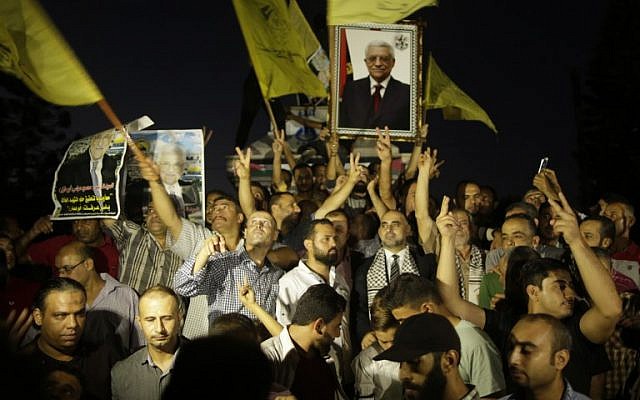
In the end, Abbas lives in a kind of ideological purgatory. He cannot pursue the violent strategy he has watched fail so spectacularly, nor can he acknowledge the flaw at the heart of his diplomatic strategy — the sad fact that Israelis who could not be frightened off by waves of suicide terrorism are not likely to be dislodged by waves of international tut-tutting. Worse, the trap is permanent. Israeli recalcitrance is shored up against foreign pressure by the very expectation of more waves of terrorism. The one Palestinian strategy fatally undermines the other.
And so he is left trying to sell Palestinians on the shallowest of the strategic visions available to them, and they know it. (A recent poll found that 67 percent of Palestinians want him to resign, a result that surprised no one.) Salvation will come from New York and Geneva, he insists, even as Israelis remain distinctly unimpressed by his international efforts. And the longer salvation is delayed, the more he is identified with yet another drawn-out failure of the Palestinian national movement.
Albatrosses
In the unity deal struck between Hamas and the Palestinian Authority last month, Abbas effectively swallowed into his PA, into his vehicle for restoring Palestinian dignity by — not to put too fine a point on it — ignoring the causes of Palestinian self-defeat, the very architects of that defeat, the party most responsible for the hardening of Israeli politics against Palestinian aspirations.
And, as might be expected, he has done so without any capacity to control what Hamas does or says in Palestine’s name. Hamas, after all, seems eager to surrender every instrument of sovereignty it possesses in Gaza – except the one that matters: its armed wing will remain intact, and under its control.
This was not Hamas’s “red line,” as some commentators suggested, implying that Hamas was being magnanimous with its other concessions. It was the original point and purpose of the entire exercise of reconciliation. Hamas could not give up its military wing because it was in the process of becoming its military wing, shorn of the extranea of civil politics.
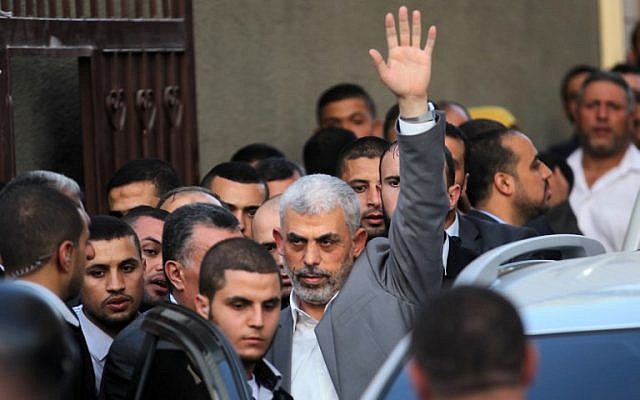
It is no accident that in the delicate days leading up to the November 1 transfer of Gaza’s border crossings to the PA, Hamas leaders took painstaking care to assure their Fatah counterparts that, more than anything else, they should not fear the continued existence of a separate Hamas military.
The nation is “still in the throes of our national liberation efforts,” and therefore “we cannot surrender our weapons,” Sinwar himself said on October 25. But, he assured, “our weapons must be under the umbrella of the [Fatah-dominated] Palestine Liberation Organization.”
“The weapons of the Qassam Brigades [Hamas’s military wing] belong to the Palestinian people,” he added for good measure. They were meant “to be used for the liberation effort, and not for internal conflict.”
Those words, meant to soothe the nerves of Fatah officials who understand how small is their victory if Hamas retains its 25,000-strong military, were a signal of the tension within Fatah over the reconciliation. Indeed, just a week earlier, Sinwar was decidedly less magnanimous: “Disarming us,” he quipped, “is like Satan dreaming of heaven. No one can take away our weapons.”
Fatah leaders are not stupid; they understand that their retaking of Gaza is coming at the cost of liberating Hamas from its civilian responsibilities and freeing it to better lead the military side of the Palestinian agenda. They are worried.
Some analysts have suggested that Hamas will still be able to play “spoiler” to any peace initiative. This is true, of course, but it was also true before the reconciliation.
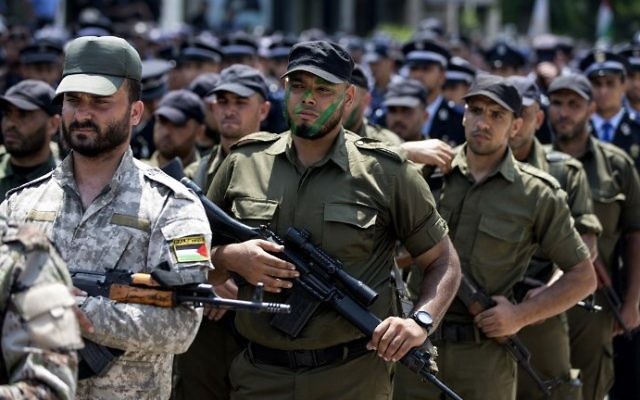
What worries Fatah is not Hamas’s ability to spoil peace talks. Hamas has won something more important in Palestinian terms. By granting it a reprieve from its civilian rule in Gaza, and thus unshackling it from responsibility for the consequences of its narrative, Abbas has ensured that no matter what he says or does, it is Hamas and its ilk, the proponents of sacred, violent resistance, who will tell his story. They are now the emancipated bearers of the only Palestinian narrative actively being told in Palestine, a narrative whose basic tenets Abbas has not even attempted to challenge.
Abbas’s entire vision and legacy now lie at Hamas’s feet. He can never crush them enough, nor suppress their narrative about Palestinian resistance sufficiently — in part because he believes much of it himself — to win the war of ideas. He has now backed himself into the unenviable corner of trying to push ahead with his internationalization strategy while an unfettered Hamas operates without the slightest check to undermine him.
And he did it to himself, all for the paltry benefit of restoring the lost dignity of Fatah’s 2007 collapse in Gaza.
Hamas’s leaders are surely breathing easier now that the responsibility for Gaza’s desolation is being lifted from their shoulders. But for them, too, the reconciliation comes at a vast price. Hamas has effectively acknowledged that it is unable to steer the territory under its control to freedom and prosperity. The hard-bitten tacticians of its military wing may scoff at such considerations, but that doesn’t make them unimportant. In its abdication of civil leadership, Hamas reveals its own underlying strategic weakness, a weakness it shares with its new ally Hezbollah. Both groups are powerful enough to drag their nations into war, but not ideologically flexible or curious enough to be the bearers of better days.
Hamas has acknowledged that it cannot build a Palestine where Israel has withdrawn. It no longer even wants to.



How long will the Sunnis remain hostage of the Pal.?
I recall it was such a pleasure when Arafat’s complex was torn down around his ears, with him bottled up in two rooms, which was the way it stayed until he died.
Hamas being now free of all civilian responsibility, means that the Anti-Semitic EU and other donors to the P.A. will be shouldering heavier bills from now on. All the billions sent to Gaza were squandered on tunnels, or skimmed off. So they’ll have to face completely rebuilding the whole Strip.
I dispute the writer’s opinion that Israel blockaded Gaza. How can that be when literally hundreds of truckloads of all kinds of domestic goods are sent from Israel every single day, through a special crossing dedicated only to this work. It is Egypt which blockaded Gaza, allowing it’s entry port open only 2-3 times a year, for a day or 2 days at most; and for people more than goods. Egypt also destroyed a wide swath of Gaza residents’ homes so as to create a clear corridor, to enable better control of smuggling. Again, just recently they increased the width, which is now over 2000 metres.